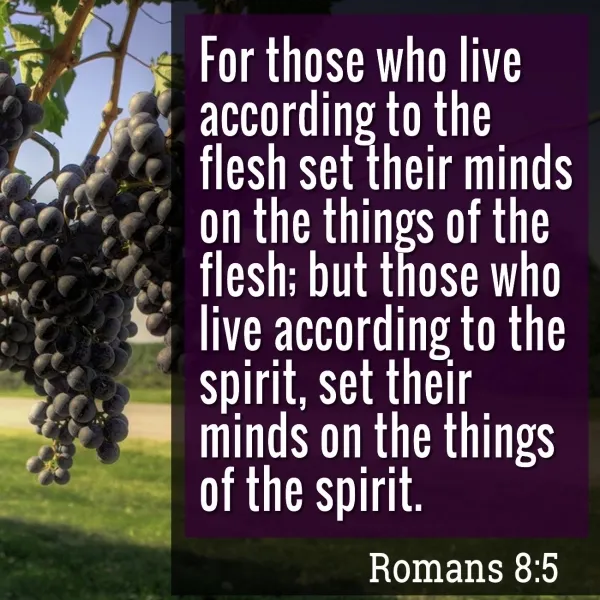The apostle Paul in his letter to the Romans tells us about the universality of sin, the law of Moses and the eternal war between the spirit and the flesh:
"For those who live according to the flesh set their minds on the things of the flesh; but those who live according to the spirit, set their minds on the things of the spirit. The mind governed by the flesh is death, but the mind governed by the spirit is life and peace. The mind governed by the flesh is hostile to God; it does not submit to God's law, nor can it do so." Romans 8: 5-7

The apostle is explaining to us that the spirit and the flesh are mentalities, ways of thinking and discerning: the flesh, that is the sin, cannot submit to the law of God and this is the origine of the eternal hostility between the spirit and the flesh. Those who live according to the flesh cannot understand the things of God.
The righteousness and the sin are ethical solutions, that is, solutions to human behavior. When we talk about carnal people, we talk about people subject to error.
The parable of the good samaritan is a good example of the difference between living according to the flesh and living according to the spirit:
"A man was going down from Jerusalem to Jericho, when he was attacked by robbers. They stripped of his clothes, beat him and went away, leaving him half dead. A priest happened to be going down the same road, and when he saw the man, he passed by the other side. So too, a levite, when he came to the place and saw him, passed by the other side. But a samarithan, as he traveled, came where the man was; and when he saw him, he took pity on him. He went to him and bandage him wounds, pouring on oil and wine. Then he put the man on his own donkey, brought him to an inn and took care of him. The next day he took out two denarii and gave them into the innkeeper. "Look after him" he said, "and when I return, I will reimburse you for any extra expense you may have"
Which of these three do you think was a neighbor to the man who fell into the hands of the robbers?" Luke 10:25-37
The good samaritan imitates Jesus, as explained in Matthew 7:12: "Do unto others as you would have them do unto you". The golden rule is known as spiritual gift of rectitude.
When we live according to this spiritual gift, we live according to the spirit, when we sin, like the priest and the levite we live according to the flesh. We have to choose between the flesh and the spirit.
For more information, visit my profile, follow the link and download for free my ebook.